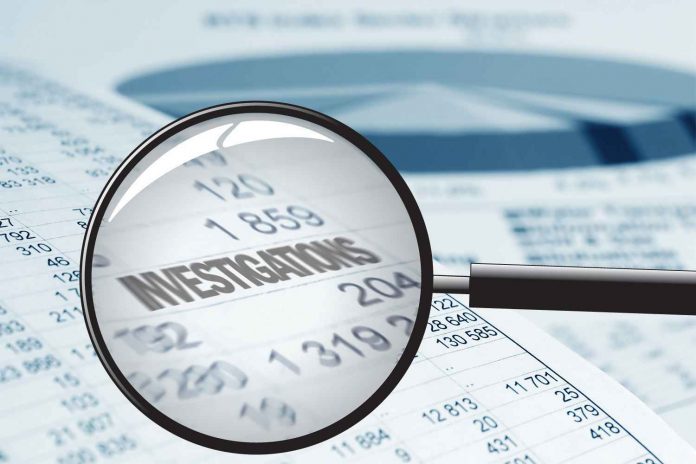This article is authored by Akash Krishnan, a law student from ICFAI Law School, Hyderabad. It discusses in detail the offences under the Prevention of Corruption Act 1988, the process of investigation under the Act and the Central and State level bodies that deal with the investigation of offences related to corruption, bribery etc.
Table of Contents
Introduction
The Prevention of Corruption Act, 1988 was enacted with the objective of consolidating all the existing anti-corruption laws. One of the first legislation to govern the area of corruption was the Criminal Law (Amendment) Ordinance, 1944. It was enacted with the objective to prevent the disposal or concealment of property that was acquired through corruption, bribery and other allied offences. This ordinance was incorporated into the Prevention of Corruption Act.
A Central Vigilance Commission was set up in 1964 to exclusively deal with cases of corruption and several State-specific vigilance commissions were also set up with time to resolve the issue of corruption.
Before delving into the process of investigation provided under the Act and followed by these bodies, let us first try and understand the kinds of offences that are included under the Act.
Offences under the Prevention of Corruption Act
Bribing of a public servant by an individual
Section 7 of the Act deals with offences relating to bribery of public servants. The following acts when committed by a public servant amounts to bribery:
- If the public servant obtains, accepts or attempts to obtain undue advantage from any person with the intention of performing his public duty improperly or dishonestly.
- If the public servant obtains, accepts or attempts to obtain undue advantage from any person as a reward for performing his public duty improperly or dishonestly.
- If the public servant obtains, accepts or attempts to obtain undue advantage from any person in exchange for inducing another public servant for performing his public duty improperly or dishonestly.
Any action under this provision is punishable with an imprisonment of three years that may extend to seven years and a fine.
Section 7A of the Act states that if a public servant obtains, accepts or attempts to obtain an undue advantage as a motive or reward from any person in exchange for using his personal influence on another public servant to induce him to perform his public duty improperly or dishonestly. This is punishable with an imprisonment of three years that may extend to seven years and a fine.
Bribing of a public servant by a commercial organisation
Section 9 of the Act states that if a commercial organisation gives or promises to give a public servant an undue advantage in exchange for obtaining/retaining a business or a business advantage, the person in charge of the organisation under whose authorisation the undue advantage is being given shall be punishable with an imprisonment of three years that may extend to seven years and fine.
Investigation
Persons authorised to investigate
Section 17 of the Act deals with persons authorised to investigate offences under the Act. The persons so authorised have been enumerated below:
- An investigation by Delhi Special Police Establishment: An officer not below the rank of Inspector of Police
- In metropolitan areas like Bombay, Madras, Calcutta: An officer not below the rank of Assistant Commissioner of Police
- Any other place: An officer not below the rank of Deputy Superintendent of Police
- No authorised officer can conduct investigations or cause arrest without obtaining an order from the Metropolitan Magistrate or Magistrate of First Class.
Restriction on the investigation in certain cases
Section 17A of the Act states that no person can investigate an alleged offence when such offence deals with the recommendation/decision taken by the public servant in discharge of his official duties. In case such an investigation is to be conducted, the approval of the following is required:
- For offences in connection with the affairs of the Union: Approval of the Central Government
- For offences in connection with the affairs of the State: Approval of the relevant State Government
However, no such approval is required if an arrest is made on the spot and the offender admits to the commission of an offence.
Power to inspect Bankers’ Books
Section 18 of the Act states that if the investigation officer is of the opinion that the bankers’ books, i.e., the bank statements of the offender need to be looked into for the purpose of investigation, the officer is allowed to inspect the same. This power of inspection is not limited to the bank accounts of the offender but also includes the power to look into the bank accounts of any person whom the officer suspects to be holding the money on behalf of the offender.
Specific amendments to the Act for the UT of Jammu and Kashmir
Establishment of an Anti-Corruption Bureau
Section 17 B of the J & K Prevention of Corruption Act, 2006 states that the Government of the UT of Jammu and Kashmir should set up an Anti-Corruption Bureau for investigating offences under this Act.
Power of attachment of property
Section 17 C of the Act states that if during the investigation of an offence under this Act, the Anti-Corruption Bureau is of the opinion that a certain property has been acquired by means of corrupt practices or criminal misconduct, then the officer investigating the case can seize the property with the written approval of the Director of the Anti-Corruption Bureau. If the seizure of the property is not possible, an order restricting the offender from dealing with property can be made by the investigating officer with the written approval of the Director of the Anti-Corruption Bureau.
Once the property has been seized or an order restricting the offender from dealing in the property has been made, the same has to be placed before the Designated Authority for approval. The Designated Authority may approve or revoke the order within 30 days.
The decision of the Designated Authority can be appealed against within one month of the decision to the Special Court. The Special Court may approve or revoke the order within 60 days of the filing of the appeal.
Central Vigilance Commission
Santhanam Committee Report
The Santhanam Committee was set up to review the problem of corruption in India and make suggestions to resolve the problem. In furtherance of the same, the Committee gave its report and the Central Vigilance Commission was set up based on the recommendations of the Committee report.
Responsibilities of the Committee
- Examine the different vigilance units that are set up and look into the work efficiency of these units.
- To examine the duties, responsibilities and functioning of the Special Police Establishment.
- Make recommendations to increase the efficiency of these organisations in fighting corruption.
- Make recommendations regarding appropriate changes in the law that would make anti-corruption laws more effective and ensure speedy trials in these cases.
- Make recommendations regarding steps that could be taken to create awareness and avoid cases of bribery and corruption.
Recommendations
Central Vigilance Commission
- The existing vigilance units are having less success when it comes to dealing with cases of corruption or bribery.
- There was a need for the establishment of independent vigilance units that would function with assistance from the Anti-Corruption Unit of the Central Bureau of Investigation.
- The newly formed Central Vigilance Commission should have two units. One unit should deal with cases of vigilance, abuse of power etc and the second unit should exclusively deal with cases of corruption/bribery. Also, there should be a Chief Vigilance Officer in each Ministry, Department and Central corporate undertaking.
Special Police Establishment (SPE)
- A Special Police Establishment should be set up and it should be given powers to investigate offences of corruption and bribery by public servants and other officers of the Government.
- The SPE should only look into and investigate specific offences of corruption and it would act as a supplementary body to the State police forces.
Establishment of the Central Vigilance Commission
In furtherance of the recommendations made by the Santhanam Committee, the Central Vigilance Commission (CVC) was established in 1964. However, it was not given the status of a statutory body at that time. It initially received statutory status in 1988 when an ordinance was promulgated by the President in this regard. Later, the Central Vigilance Commission Act, 2003 was enacted and a permanent statutory status was given to the Central Vigilance Commission.
Functions and Powers of the Central Vigilance Commission
- Under Section 8(1)(a) of the CVC Act, the CVC exercises superintendence over the investigation of offences under the Prevention of Corruption Act when such investigations are carried out by the Delhi Special Police Establishment, i.e., the special unit of the Central Bureau of Investigation (CBI).
- Under Section 8(1)(b) of the CVC Act, the CVC is empowered to direct the Delhi Special Police Establishment in matters relating to the investigation of offences under the Prevention of Corruption Act.
- Under Section 8(1)(c) of the CVC Act, the CVC can inquire and investigate into matters that are referred to it by the Central Government.
- Under Section 8(1)(e) of the CVC Act, the CVC is empowered to review the progress of the Delhi Special Police Establishment in matters relating to the investigation of offences under the Prevention of Corruption Act.
- Under Section 8(1)(f) of the CVC Act, the CVC is empowered to review applications regarding sanction of prosecution for offences under the Prevention of Corruption Act.
Preliminary inquiry
Section 8A of the CVC Act states that after receiving a complaint of corruption or on the recommendation of the Central Government, the CVC shall conduct a preliminary inquiry into the matter. The offender should be given an opportunity of being heard during the preliminary inquiry. If after the inquiry, the CVC is of the opinion that the provisions of the Prevention of Corruption Act have been violated, then the CVC shall take any of the following actions:
- Direct the Delhi Special Police Establishment or any other authorised body to initiate an investigation into the matter
- Initiate disciplinary proceedings or any other appropriate action against the offender through a competent authority
- Initiate proceedings under the Lokpal and Lokayuktas Act, 2013.
The preliminary enquiry should be completed in 90 days but it can be extended further for a period of 90 days for reasons recorded in writing.
Investigation
The power to initiate actions after an inquiry has been provided under Section 8B of the CVC Act. If the CVC after the preliminary inquiry deems that the case should be investigated by the Delhi Special Police Establishment or any other authorised body, then such investigation should be completed within a period of six months from the date of order of investigation. This tenure can be extended further for a period of six months for reasons recorded in writing.
Once the investigation is completed, the investigation report should be submitted to the CVC. The CVC after going through the report may take the following actions:
- File a charge sheet before the Special Court against the offender.
- File a closure report before the Special Court against the offender.
- Initiate departmental proceedings against the offender.
Power relating to an inquiry
Section 11 of the CVC Act states that the CVC is vested with the powers of a civil court while conducting inquiries under Section 8A of the CVC Act. The powers have been enumerated below:
- Summoning and examining a person on oath.
- Ordering for the production of any document.
- Receive evidence through affidavits.
- Examination of witnesses and other documents.
- Any other power as may be prescribed.
Directorate of vigilance and anti-corruption
After the constitution of the CVC in 1964, similar vigilance commissions were set up by different states to deal with matters relating to corruption and bribery in the state. The features of these state commissions have been discussed below.
Functions
- To inquire into incidents of corruption, bribery and other allied misconducts on reference by the State Vigilance Commission or the State Government.
- To furnish information about the alleged cases of corruption and other misconduct to the Government.
- To inquire into allegations of corruption levelled against public servants.
- To investigate offences coming under the ambit of the Prevention of Corruption Act.
- In some cases, set up traps in order to catch public servants red-handed in an act of corruption or bribery.
Conclusion
Even after such an intricate mechanism has been set up under the Prevention of Corruption Act to investigate and punish the offences of corruption, the corruption rates in India are still high. In 2020, India recorded the highest rate of bribery in Asia with an overall bribery rate of 39%. It was noted that in 50% of the bribery cases, individuals were asked to bribe. The highest number of corruption cases were recorded in Maharashtra (664) followed by Rajasthan (363) and Tamil Nadu (304). The total number of reported cases were 2,978. One can only imagine the number of cases that go unreported.
These statistics show that even though we have a strong mechanism in place, the mechanism lacks efficiency and attempts should be made to increase the efficiency of the concerned bodies in the long run so as to avoid an increase in corrupt practices in the country.
References
- Prevention of Corruption (Amendment) Act 2018 – Booster for the honest or the corrupt?
- Directorate of Vigilance and Anti-Corruption
- Introduction The Central Vigilance Commission (CVC) was established in 1964, as an apex body for exercising general superintende
- Central Vigilance Commission (CVC)
Students of Lawsikho courses regularly produce writing assignments and work on practical exercises as a part of their coursework and develop themselves in real-life practical skills.
LawSikho has created a telegram group for exchanging legal knowledge, referrals, and various opportunities. You can click on this link and join:
Follow us on Instagram and subscribe to our YouTube channel for more amazing legal content.
 Serato DJ Crack 2025Serato DJ PRO Crack
Serato DJ Crack 2025Serato DJ PRO Crack











 Allow notifications
Allow notifications


